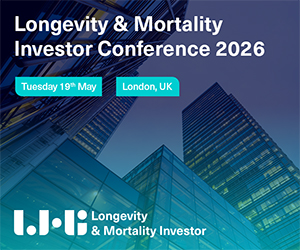Real Assets Q&A: Mortimer Menzel, Augusta Investment Management
Gaining exposure to green energy real assets for institutional investors has previously been available for only the very largest strategic investors that were able to invest in power plants, wind farms and solar farms. Augusta Investment Management is unlocking this market for a broader swath of institutional investors via the use of power purchasing agreements, and Greg Winterton spoke to Mortimer Menzel, Managing Partner at Augusta, to learn more about the firm and its approach.
GW: Mortimer, for those who might not be familiar with Augusta & Co, tell us about the firm.
MM: We started the firm back in 2002 and have built that into one of the largest pure-play European M&A firms in renewable energy. We have a team of 40 sitting in London conducting only M&A in renewables across Europe and some parts of Asia. In 2018 we set out to use some of the specialist knowledge we had accumulated to create bespoke asset management strategies for large institutional investors. This culminated in our first strategy which currently has just €800mn under management and which focuses on investing into power purchase agreements as opposed to the underlying physical assets.
GW: What was the genesis of the launch of an investment management business?
MM: An enormous amount of technical and pricing experience that we wanted to put to use. We had been conducting renewables M&A transactions throughout Europe for almost two decades and had built up enormous knowledge in terms of which are the best assets, in which markets; what the correct level of funding is; what the correct level of contracting is and of course, crucially, what are the best assumptions to make in terms of long term power pricing. We had negotiated many Nordic power purchase agreements for wind developers and so were uniquely placed to run an investment strategy based on that experience.

GW: Arguably, Augusta isn’t in the infrastructure business – it’s in the risk transfer business. Can you explain the flow of capital in your model, and why your approach works for institutional investors looking to access this asset class?
MM: Our investments are considered core infrastructure investments by our current investors. They are, we believe, the only way of getting access to large reservoir hydro with storage where you cannot buy the assets because it is strategically important and protected infrastructure in the Nordics. We provide a higher levered IRR return to investors with less risk than if we were buying the underlying assets. If, for example, you take our latest acquisition which was in Sweden’s central North electricity price area, we are producing a higher return for our investors than wind farms in the same area but we are using more conservative assumptions. How can that be? Because our investments are shorter; typically, 15 years rather than the 30 years and we can use less aggressive power pricing assumptions and less debt to make the acquisition. We are competitive at power price assumptions that banks would use lending money, not those that private equity typically uses to buy. Beyond that we offer a high cash yield of around 15% per annum, intrinsic inflation protection, there is no capex or opex to be invested and we hedge out the electricity market price risk. We do not rely on subsidies or tariffs.
The product is flexible: we have recently been asked by investors to structure the investment as a debt investment rather than an equity investment. We can do both and now offer both a debt and equity product for investors, depending on which they prefer. The debt investment is fully secured as the security that would go to the bank under the levered equity product goes to the investor if it is a debt investment. In addition, we can be flexible on the length of the investment: we can exit earlier than the 15 years (in year 5 say), if the market looks attractive and we believe this flexibility will become increasingly important to be able to maximise returns.
GW: When most people think of green energy, they think of solar or wind. What are the advantages to hydropower, and the Nordics in particular?
MM: The benefits of large or reservoir hydropower over other renewable energy technologies cannot be overstated. In the countries where we invest, this hydropower is base-load electricity and is therefore highly regulated and protected by local legislation. The technology has been established for decades, the plants usually being inside mountains at constant temperature and humidity. The sellers are all state-owned entities in Norway and Sweden. Crucially these projects have vast amounts of storage. They are naturally occurring lakes that can collect water, in some cases for many months without producing electricity if the prices are low. You are therefore able to run your turbines only when the prices are high. This gives you an inherent advantage over other renewable technologies which only work if the underlying resource is there, such as wind and solar. On average, this storage advantage means we can produce electricity at up to 25% of the average annual daily price of electricity. That’s why these investments sit well in a portfolio of other wind and solar investments; the economics of water are different and there is almost no correlation in terms of electricity production, between our reservoir hydro plants and local wind farms.
GW: Lastly, Mortimer, the green investment economy has taken something of a hit recently – the EU has already proposed a review of the SFDR regime and it’s not even three years old. What’s the message to investors here from an ESG perspective?
MM: We ask our investors to invest on the basis that this is a long to mid-term core infrastructure investment that produces stable, low to mid-teens returns from a very liquid electricity revenue stream produced by one of the most reliable energy producing technologies there is. The fact that's it's entirely green and funds further green build-out is a bonus, not the underlying investment thesis.
**********
Mortimer Menzel is Managing Partner at Augusta Investment Management
© The Sortino Group Ltd
All Rights Reserved. No part of this publication may be reproduced, stored in a retrieval system or transmitted in any form or by any means, electronic, mechanical, photocopying, recording or scanning or otherwise, except under the terms of the Copyright, Designs and Patents Act 1988 or under the terms of a licence issued by the Copyright Licensing Agency or other Reprographic Rights Organisation, without the written permission of the publisher. For more information about reprints from AlphaWeek, click here.








